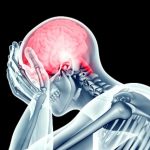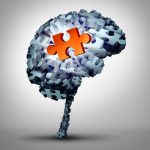 June marks the beginning of sunshine-filled days and outdoor activities, but it also happens to be Alzheimer’s and brain awareness month. This is a time where the health community bands together to raise awareness about Alzheimer’s disease and other forms of dementia. At Bel Marra, we want to do our part, so we have provided you with a ton of information regarding Alzheimer’s. Learning about this complex brain disease will equip you with the information you need to make more informed decisions.
June marks the beginning of sunshine-filled days and outdoor activities, but it also happens to be Alzheimer’s and brain awareness month. This is a time where the health community bands together to raise awareness about Alzheimer’s disease and other forms of dementia. At Bel Marra, we want to do our part, so we have provided you with a ton of information regarding Alzheimer’s. Learning about this complex brain disease will equip you with the information you need to make more informed decisions.
Alzheimer’s disease and sleep disorders: Tips to manage sleep problems with Alzheimer’s disease
Sleep disorders are a common problem in Alzheimer’s disease. Because sleep is such an important aspect of overall good health, it’s important to find ways of improving sleep in Alzheimer’s patients to reduce the risk of other health complications.
Advertisement
You may be wondering why Alzheimer’s disease and sleep disorders coexist. It mainly has to do with Alzheimer’s disrupting a patient’s sleep-wake cycle. At night, patients are restless, and during the day, they are fatigued and lethargic. The sleep troubles get worse as Alzheimer’s disease progresses. Over time, daytime naps begin to take the place of the overnight restorative sleep. Continue reading…
 Confusion in Alzheimer’s disease patients linked to silent seizures
Confusion in Alzheimer’s disease patients linked to silent seizures
Alzheimer’s disease is the most common form of dementia characterized by memory loss and decline in other cognitive abilities, resulting in difficulty completing everyday tasks in those affected by the condition. While some degree of memory decline and cognitive problems is common for the elderly, Alzheimer’s disease is not a normal part of aging, and it’s not affecting only old people—while age is a risk factor, a younger-age onset of the condition does exist. While the underlying process of why Alzheimer’s disease develops is not completely understood, it is thought to be the result of abnormal protein clump accumulation in the brain, called beta-amyloid plaques. New research in this field, however, suggests that symptoms such as confusion seen in these patients may be due to silent seizures. This may point to a potential new target for treating Alzheimer’s disease. Continue reading…
 Alzheimer’s disease and hallucinations: Coping with delusions in Alzheimer’s
Alzheimer’s disease and hallucinations: Coping with delusions in Alzheimer’s
Delusions and hallucinations are common in the latter stages of Alzheimer’s disease. Delusions are false beliefs, and even though you may provide the patient with evidence to suggest otherwise, they still hold on to their original belief. Delusions can come in a form of a paranoid idea – for example, a patient may believe that their food has been poisoned. Paranoid delusions can be quite challenging to deal with.
Hallucinations, on the other hand, are an incorrect perception of objects or events, affecting the senses. Although they seem real to the person, they cannot be verified by others. Hallucinations can result either in positive or negative experiences. A patient may hear or see something that isn’t there. Continue reading…
 History of mental health not a risk factor for Alzheimer’s: Study
History of mental health not a risk factor for Alzheimer’s: Study
Being forgetful is something we have all experienced from time to time, and it can be frustrating when we finally remember what we forgot. Forgetting to pick something up from the store or forgetting your phone at home: these are all minor nuisances, but when we realize we forgot something, we always tell ourselves it won’t happen again.
Advertisement
Now imagine that you experience one of these scenarios, but instead of trying to remedy it, you are completely oblivious to the fact that you forgot something in the first place. This is often the first sign of dementia, the most common of which is Alzheimer’s disease. Researchers used to think that a previous history of mental health issues played a role in Alzheimer’s development, but according to a new study, this may not be the case. Continue reading…
 6 natural ways to prevent Alzheimer’s disease
6 natural ways to prevent Alzheimer’s disease
Alzheimer’s disease is reaching almost epic proportions in North America. In fact, if it was infectious, it would be classified as an epidemic. ABC News recently reported an estimated 10 million baby boomers will develop Alzheimer’s disease. That’s one in every eight persons over the age of 65. The increase in prevalence rates and the failure to find a real cure is making doctors and researchers rethink their strategy. Get inspired by the old saying: prevention is better than cure.
Researchers are learning that it may be possible to prevent or delay the symptoms of Alzheimer’s disease through a combination of healthy habits. They have broadly divided these into six groups that show you how to avoid and prevent Alzheimer’s disease. The good thing is, all of them are well within your reach, so you easily incorporate them into your lifestyle and lower your risk of developing this scary condition. Continue reading…
